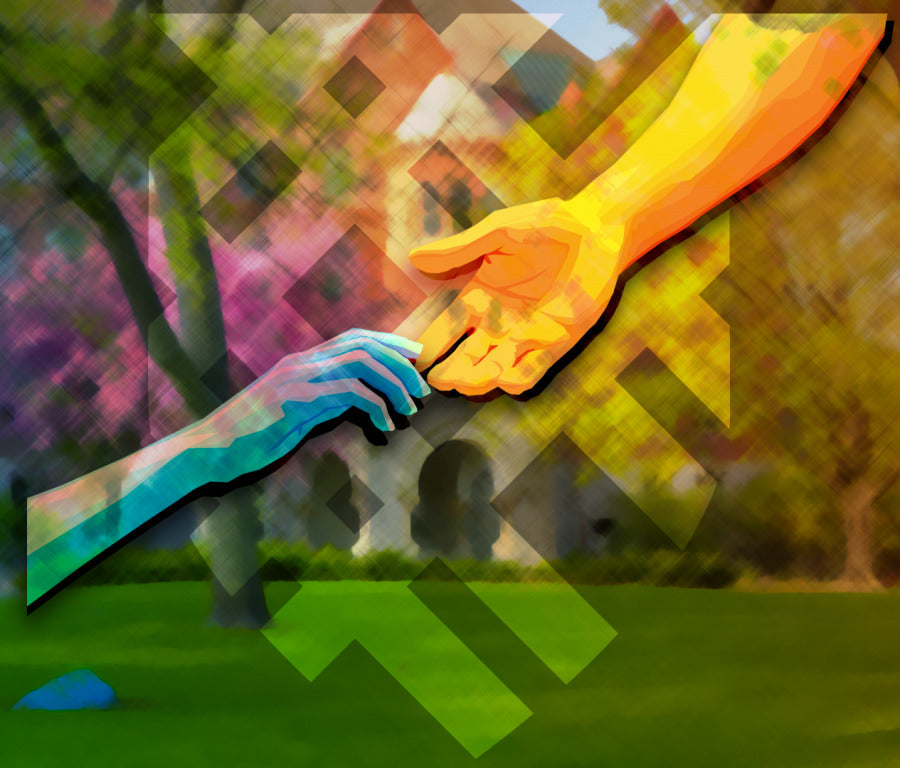The opening line of parshas Acharei Mos references the sudden death of Nadav and Avihu, that occurred on the day of the inauguration of the Tabenacle. Midrash Rabba 20:8 outlines their sin: they entered the Holy of Holies, offered a sacrifice they weren't commanded in, took foreign fire from the oven-house instead of the altar, and failed to consult with each other. In this article, we'll focus on the last point, the significance of consulting, acquiring a friend, and a mentor.
The Midrash Rabba says that had Nadav and Avihu spoken to each other, they would have corrected each other and not committed the sin. Rabbi Henoch Leibowitz, explains that even though both brothers had the same desire independently of each other, had they discussed it, they would have corrected each other and refrained from committing the sin.
This lesson is reinforced by the teaching in Pirkei Avot 1:6, "Make a teacher, acquire a friend, and judge everyone to the side of merit." The Talmud teaches that one cannot free oneself from their prison, and similarly, one cannot correct their mistakes without the help of a friend or mentor.
A mentor is someone who can guide us, teach us what to say, and more importantly, what not to say. Rabbi Chaim Soloveitchik said, "From books, one can learn what to say, a rebbe teaches you what not to say." A mentor can be someone of lesser stature, as Rabbi, Dr. Abraham Twerski relates in his story about a famous psychiatrist who called him for advice about a particular treatment for a patient Rabbi Twerski knew. Rabbi Twerski learned that only ego prevents a person from consulting with someone who may be "lesser" than themselves.
A friend is someone who can help us break up our wrong ideas and approaches. The word for friend in Hebrew, "re'ah," comes from the word teruah, meaning to break up. But the relationship must first be one of connection, hence the Mishnah uses the term "chaver," which implies a closer and more intimate relationship. Indeed, the Mishnah also uses the verb “acquire” in reference to making a friend (instead of “make” as it does for a mentor), for acquiring implies acquisition, and thus a more intimate connection. Rabbi Twerski adds that true friendship can only exist when two people remove their ego and personal interests and form a bond.
Also in Pirkei Avot, the Mishnah teaches that one of the 48 ways to acquire Torah is "dikduk chaveirim," which means to be precise in our speech with friends. This is a lesson in the importance of consulting with others and discussing our ideas and thoughts with them. A mentor is someone whom we have accepted as someone we will follow and listen to, while a friend is someone with whom we discuss an issue.
Finally, it is essential to judge everyone to the side of merit. This is the key to acquiring and making a mentor and friend. Otherwise, we will always see the flaws in them and reasons why they are not appropriate. As the Likutei Maharan teaches, there is always a place of goodness in everyone, and we need to look a bit more to see it.
In conclusion, the story of Nadav and Avihu teaches us the importance of consulting with others and acquiring a friend or mentor. It's crucial to have someone in our lives who can guide us and teach us what to do and not do. A friend is someone who can help us break up our wrong ideas and approaches, but the relationship must first be one of connection. We must judge everyone to the side of merit to acquire and make a mentor and friend. With these teachings in mind, we can learn from the mistakes of Nadav and Avihu and strive to become better people.

